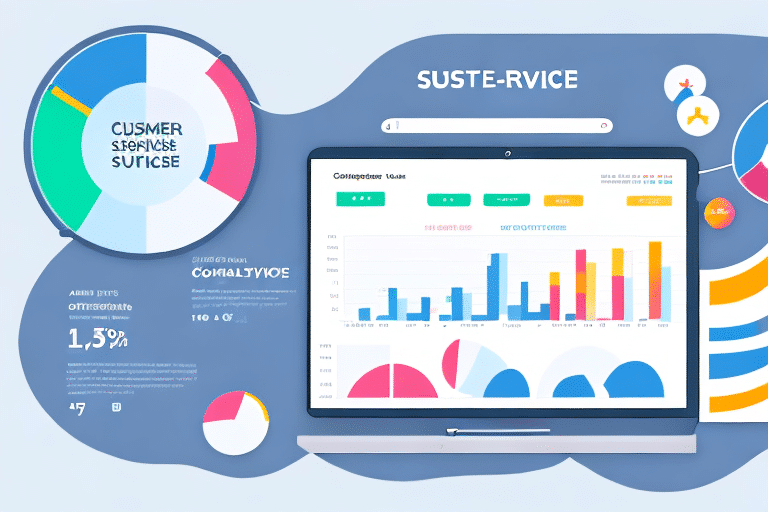Top Customer Service Strategies to Measure Your BFCM Success
As millions of shoppers prepare for the biggest shopping event of the year, it is crucial for businesses to have their customer service strategies in place. With fierce competition and the surge in online shopping, keeping customers satisfied throughout the entire shopping journey has never been more critical. In this article, we will explore the top customer service strategies every business should implement to measure success during the Black Friday Cyber Monday (BFCM) event.
Measuring Customer Service Success During BFCM
Key Metrics to Track During BFCM
The most important customer service metrics to track during BFCM include response time, resolution time, and customer satisfaction. Response time measures how quickly a customer service representative responds to an inquiry, while resolution time gauges the duration it takes to resolve an issue from start to finish. Customer satisfaction scores provide insight into the overall effectiveness of your customer service team. According to a Salesforce report, companies that prioritize these metrics see a significant boost in customer loyalty and sales.
Analyzing Customer Feedback During BFCM
In addition to monitoring metrics, actively listening to customer feedback during BFCM is essential. Whether positive or negative, feedback offers valuable insights that can help businesses refine their customer service and overall shopping experience. Understanding customer pain points and addressing them can lead to increased sales and enhanced customer loyalty. Promptly responding to feedback, even when it's negative, can turn a dissatisfied customer into a loyal advocate.
The Impact of Customer Service on BFCM Sales
Exceptional customer service directly correlates with increased BFCM sales. Providing outstanding support can lead to higher sales volumes, repeat customers, and positive word-of-mouth referrals. Conversely, poor customer service can result in lost sales, negative reviews, and diminished customer trust. Investing in customer service not only enhances the BFCM experience but also contributes to long-term business success.
Using Technology to Improve Customer Service During BFCM
Technology plays a pivotal role in enhancing customer service during BFCM. Implementing chatbots can help businesses respond to customer inquiries swiftly, even during peak shopping times. Additionally, utilizing Customer Relationship Management (CRM) software allows businesses to track customer interactions and provide personalized service. According to a Gartner report, businesses that leverage CRM technology see a 20% increase in customer satisfaction rates.
Training Your Customer Service Team for BFCM
Preparing your customer service team for the BFCM surge is essential for success. Ensure your team is well-versed in your products or services, as well as any promotions or deals available during BFCM. Providing comprehensive training and the necessary tools enables your team to handle customer inquiries efficiently and resolve issues promptly. Well-trained teams not only improve customer satisfaction but also drive higher sales during the event.
Enhancing Your Post-Purchase Customer Experience
The Importance of Post-Purchase Customer Service
Post-purchase customer service focuses on ensuring that customers remain satisfied after completing their purchase. Addressing any issues that arise after a sale can significantly reduce return rates and build long-term customer loyalty. According to a Harvard Business Review study, improving customer retention by just 5% can increase profits by 25% to 95%.
Strategies for Improving Post-Purchase Customer Experience
One effective strategy is to provide proactive updates on order status and tracking information. Keeping customers informed about their purchase reduces anxiety and enhances satisfaction. Additionally, sending personalized follow-up emails or making phone calls to ensure customers are happy with their purchase can foster loyalty and encourage repeat business.
Leveraging Technology to Enhance Post-Purchase Customer Service
Advancements in technology allow businesses to utilize tools like chatbots, artificial intelligence (AI), and automation to elevate post-purchase customer service. Chatbots can handle basic inquiries efficiently, while AI-powered tools offer personalized recommendations and support. Automation aids in providing timely updates on order status, thereby reducing the burden on customer service teams and enhancing the overall customer experience.
The Benefits of Investing in Post-Purchase Customer Experience
Investing in post-purchase customer experience yields substantial benefits, including increased customer loyalty and positive reviews. Customers who have a positive post-purchase experience are more likely to become repeat buyers and recommend the business to others. Furthermore, positive word-of-mouth can attract new customers and boost sales. Prioritizing post-purchase interactions helps build a loyal customer base and strengthens the company's reputation.
Leveraging Technology for Superior Customer Service
Implementing Chatbots and AI Solutions
Chatbots and AI solutions can handle a high volume of customer inquiries, providing quick and accurate responses. These technologies ensure that customers receive assistance 24/7, reducing wait times and improving overall satisfaction. According to a IBM study, businesses that implement AI chatbots experience a 30% increase in customer engagement.
Utilizing Customer Relationship Management (CRM) Systems
CRM systems help businesses manage and analyze customer interactions and data throughout the customer lifecycle. By utilizing CRM, companies can personalize their interactions, anticipate customer needs, and streamline communication. This leads to enhanced customer satisfaction and increased sales. A Salesforce report highlights that CRM users see an average revenue increase of 41% per salesperson.
Training Your Customer Service Team for BFCM
Comprehensive Product and Service Training
Ensure that your customer service team is thoroughly trained on all products and services offered, especially those featured during BFCM. Comprehensive training enables representatives to provide accurate information and resolve issues efficiently, leading to higher customer satisfaction.
Handling High-Volume Inquiries Efficiently
During BFCM, customer service teams may face a surge in inquiries. Implementing strategies such as prioritized ticketing systems and providing representatives with the necessary resources can help manage high volumes effectively. This ensures that customers receive timely assistance, even during peak periods.
Streamlining Customer Service Operations
Integrating Customer Service Tools
Integrating various customer service tools can streamline operations and enhance efficiency. For example, combining shipping trackers with your CRM system allows for automatic updates and seamless communication with customers. This integration reduces the manual workload and ensures that customer inquiries are handled promptly.
Utilizing Automation for Routine Tasks
Automation can handle routine tasks such as order confirmations, shipping notifications, and follow-up emails. By automating these processes, customer service teams can focus on more complex inquiries, improving overall productivity and customer satisfaction.
Conclusion
Implementing robust customer service strategies is paramount during BFCM. By focusing on measuring success, analyzing feedback, enhancing post-purchase experiences, leveraging technology, training your team, and streamlining operations, businesses can deliver exceptional customer service that drives increased sales and fosters customer loyalty. Investing in these strategies not only ensures a successful BFCM event but also contributes to long-term business growth and a strong reputation in the market.






















